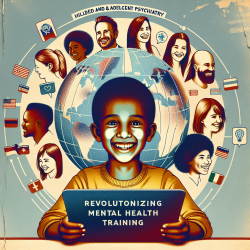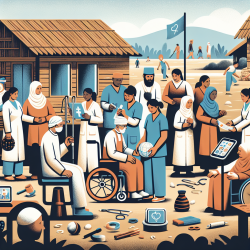Introduction
In the world of speech-language pathology, data-driven decisions are crucial to achieving the best outcomes for children. This blog post explores how practitioners can enhance their skills by implementing findings from a recent study on Conservative Kidney Management (CKM) Pathway, which offers insights into effective strategies that can be adapted for online therapy services like those provided by TinyEYE.
Understanding the Research
The study, titled "Identification of core components and implementation strategies for a Conservative Kidney Management Pathway across a complex, multisector healthcare system in Canada using World Cafés and the Theoretical Domains Framework," offers valuable insights into behavior change and implementation strategies. The research identifies core components of care and effective strategies such as education, training, environmental restructuring, and modeling, which can be applied to improve online therapy services for children.
Key Takeaways for Practitioners
Here are some practical ways practitioners can apply these findings to enhance online therapy services:
- Education and Training: Continuous professional development through targeted training sessions can enhance therapists' skills, ensuring they are equipped with the latest techniques and knowledge.
- Environmental Restructuring: Creating a conducive online environment for therapy sessions can improve engagement and outcomes. This includes using interactive tools and resources that align with children's learning styles.
- Modeling: Demonstrating effective communication and therapy techniques can serve as a model for both children and their caregivers, fostering a collaborative approach to therapy.
Encouraging Further Research
While the study provides a robust framework for implementation, it also highlights the importance of adapting strategies to local contexts. Practitioners are encouraged to conduct further research to tailor these strategies to their specific needs and environments. By doing so, they can ensure that therapy services are not only effective but also sustainable and adaptable to the unique needs of each child.
Conclusion
Implementing the outcomes of this research can significantly enhance the quality of online therapy services for children. By focusing on education, environmental restructuring, and modeling, practitioners can create a more engaging and effective therapy experience. For those interested in exploring the original research further, it provides a comprehensive guide to developing and implementing strategies that can be adapted to various settings.
To read the original research paper, please follow this link: Identification of core components and implementation strategies for a Conservative Kidney Management Pathway across a complex, multisector healthcare system in Canada using World Cafés and the Theoretical Domains Framework.










